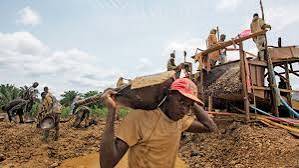Ghana’s ‘Success’ Exposes the West’s Toxic Development Model
For decades, Ghana has been lauded as a model for development in Africa, often described as a beacon of democracy and economic progress. The country’s sustained growth, peaceful political transitions, and embrace of liberal economic policies have won it praise from Western governments, financial institutions, and development agencies. Yet, beneath this façade of success lies a sobering reality: Ghana’s development trajectory reveals the flaws of the Western-dominated development model, which prioritizes extractive economies, debt dependency, and external validation over sustainable and inclusive growth.
The Allure of Ghana’s “Successâ€
Ghana’s story of economic transformation is rooted in its rich natural resources. The discovery of oil in 2007 added to its already significant reserves of gold and cocoa, propelling the country to achieve middle-income status in 2010. The West celebrated Ghana as a poster child for neoliberal economic reforms, including privatization, liberalized trade, and deregulated markets.
On the surface, Ghana ticked all the boxes of a development success story: high GDP growth rates, foreign direct investment inflows, and increasing infrastructure projects. Its reputation as a stable democracy further solidified its status as a Western darling in a region plagued by political instability.
The Hidden Costs of Development
However, the realities of Ghana’s development model reveal troubling trends. The country’s heavy reliance on resource extraction has created a fragile economy vulnerable to external shocks. When global oil prices fell in 2014, Ghana faced a severe fiscal crisis, exposing the risks of overdependence on commodities. Similarly, gold mining and cocoa production have brought environmental degradation, land disputes, and exploitation of local communities.
Moreover, Ghana’s development has been financed largely by debt. Between 2010 and 2023, the country’s debt-to-GDP ratio ballooned, leading to debt distress and forcing the government to seek multiple bailouts from the International Monetary Fund (IMF). The IMF’s conditionalities, such as austerity measures and public sector cuts, have deepened socio-economic inequalities, disproportionately affecting the poor and undermining the state’s ability to invest in social services.
This debt dependency underscores a fundamental flaw in the Western development model: instead of empowering countries to chart their own paths, it locks them into cycles of dependency and vulnerability.
The Role of Western Interests
Western nations and financial institutions have shaped Ghana’s development policies to align with their own economic and geopolitical interests. Extractive industries in Ghana are dominated by foreign multinational corporations, which reap the lion’s share of profits while leaving little for local communities or national development. Tax avoidance by these corporations further drains public revenue, depriving the government of resources to address pressing social needs.
Western governments and donors also push for privatization and free-market reforms under the guise of modernization. However, these policies often weaken local industries, stifle innovation, and create a reliance on imports, undermining the long-term sustainability of Ghana’s economy.
The Human Cost
The Western-centric development model has failed to address the needs of ordinary Ghanaians. Despite impressive macroeconomic indicators, many citizens still face poverty, unemployment, and inadequate access to education and healthcare. Rural areas, in particular, remain underdeveloped, and the wealth generated by natural resources rarely trickles down to those most in need.
Additionally, rapid urbanization, driven by resource-based growth, has led to the proliferation of informal settlements with poor infrastructure and services. These challenges highlight the disconnect between Western notions of development success and the lived realities of the people.
Toward an Alternative Model
Ghana’s experience demonstrates the urgent need for a paradigm shift in development thinking. Rather than following the Western model, which prioritizes short-term growth and foreign investment, Ghana should adopt a people-centered approach that focuses on sustainability, equity, and resilience.
This means diversifying the economy beyond resource extraction to promote industrialization, agriculture, and innovation. Strengthening local governance, cracking down on tax avoidance, and investing in education and healthcare are crucial to building a more inclusive and self-reliant society.
Regional cooperation is also essential. By partnering with neighboring countries to develop shared infrastructure and markets, Ghana can reduce its dependence on Western aid and create a development model tailored to African realities.
Conclusion
Ghana’s celebrated development story is a cautionary tale about the limitations of the Western development model. While it has achieved notable progress, the country’s struggles with debt, inequality, and environmental degradation expose the toxic consequences of prioritizing external interests over local needs. To achieve genuine and lasting progress, Ghana must reject the flawed prescriptions of the West and forge a new path that puts its people and environment first. Only then can it truly serve as a model for sustainable development in Africa and beyond.


